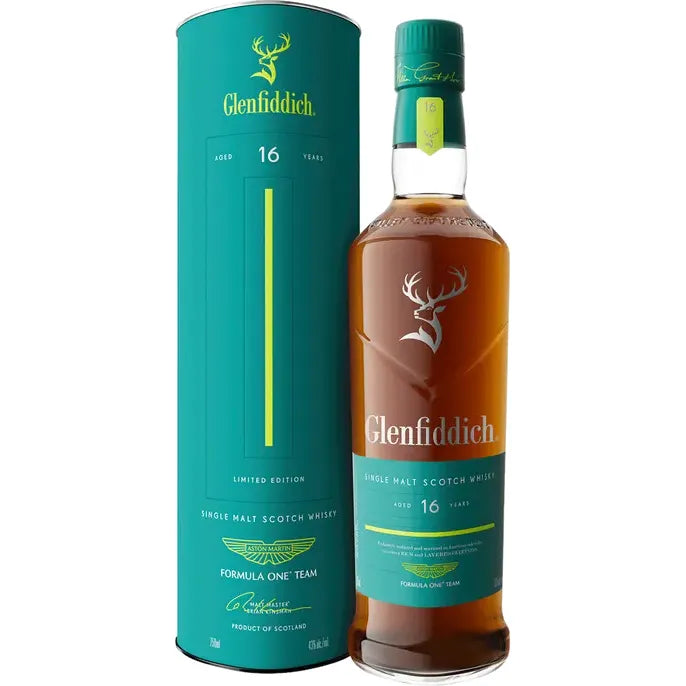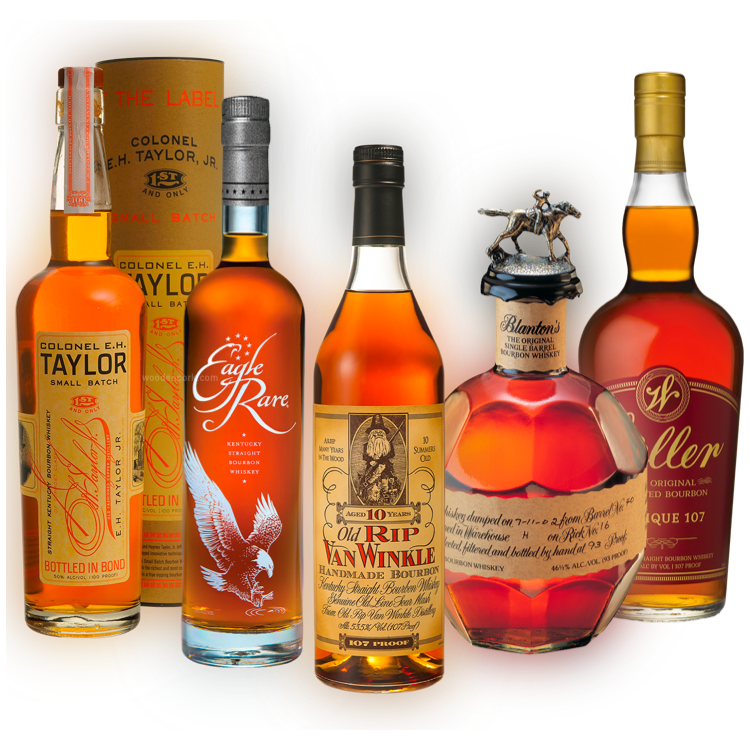Licence to distil: Scotch’s bicentennial year
Eagle-eyed readers will have noticed an influx of stories this year regarding Scotch whisky brands celebrating their bicentenary. So what happened 200 years ago that made founding a whisky distillery the done thing?
In 2024, six Scotch whisky distilleries are celebrating their bicentennial year: The Glenlivet, The Macallan, Fettercairn, Miltonduff, Cardhu, and Balmenach. These six distilleries are the only ones remaining out of 167 that reportedly registered in 1824, the year after licensed distilling came into action. However, there are many Scotch brands still in operation that have been around for far more than 200 years. The Glenturret, for example, is officially the oldest distillery in Scotland, which began as an illegal facility on a farm in 1775 – although a history of bootleg whisky production at the site has been found to date back to at least 1717. In fact, the first records of whisky production in Scotland go back as far as 1494. From then until 1781, producers could distil spirits without much regulation or, more importantly, taxation. However, that changed when private distilling was then banned. Things got even harder in 1822, when the Illicit Distillation Act was brought in, resulting in harsher punishments for anyone known to be producing, supplying, or even consuming illegal whisky. However, luckily for some, King George IV had a particular penchant for whisky. In that same year, he visited Scotland and, after being so impressed by its whisky distillers, decided to introduce the Excise Act in 1823, which set a licensing fee of £10 for stills (equivalent to £1,376/US$1,825 today), defined duty levels for distilled spirits, allowed for the warehousing of spirits before duty payments, and significantly reduced opportunities for tax evasion in the whisky trade. Subsequently, the Excise Act paved the way for the development of high-quality, aged Scotch whiskies. The first licence after the passage of the 1823 Excise Act is said to have been given to Jane Macgregor of the now-closed Littlemill Distillery. From then, the influx of distilleries seeking licences snowballed, and by 1826, 264 whisky distilleries had licences – almost twice the number currently in operation in Scotland today. But it was George Smith, a former illicit distiller, who is considered to be the first person to have legally distilled whisky under the new licensing act, enabling him to found The Glenlivet in 1824. Here, we look at how these six remaining distilleries first legally founded in 1824 are marking this monumental bicentennial milestone.The Glenlivet
 Last week, Chivas Brothers-owned The Glenlivet unveiled The Eternal Collection, First Edition 55-year-old – its oldest official single malt bottling – to mark its bicentennial.
The whisky was aged in a seasoned Sherry cask for 55 years, resulting in a complex flavour profile and astonishingly long finish. Kevin Balmforth, cask master at The Glenlivet, who directed the final maturation years of the whisky, describes the taste experience as “a medley of autumn fruits, sun-drenched Seville oranges and sticky dates enveloped by the spiced warmth of cinnamon and nutmeg on the nose, alongside the sweet, warming flavours of homemade blackcurrant jam and vanilla fudge, balanced with zesty citrus notes on the palate.”
The 55-year-old is limited to only 100 spherical decanters, which sit in a sculpture crafted by computational architect Michael Hansmeyer that takes inspiration from the home of The Glenlivet. It was unveiled during an exclusive 200th-anniversary celebration at the brand's distillery in Speyside, Scotland.
Last week, Chivas Brothers-owned The Glenlivet unveiled The Eternal Collection, First Edition 55-year-old – its oldest official single malt bottling – to mark its bicentennial.
The whisky was aged in a seasoned Sherry cask for 55 years, resulting in a complex flavour profile and astonishingly long finish. Kevin Balmforth, cask master at The Glenlivet, who directed the final maturation years of the whisky, describes the taste experience as “a medley of autumn fruits, sun-drenched Seville oranges and sticky dates enveloped by the spiced warmth of cinnamon and nutmeg on the nose, alongside the sweet, warming flavours of homemade blackcurrant jam and vanilla fudge, balanced with zesty citrus notes on the palate.”
The 55-year-old is limited to only 100 spherical decanters, which sit in a sculpture crafted by computational architect Michael Hansmeyer that takes inspiration from the home of The Glenlivet. It was unveiled during an exclusive 200th-anniversary celebration at the brand's distillery in Speyside, Scotland.
The Macallan
 Two centuries have passed since Alexander Reid, founder of The Macallan, formerly known as The Elchies Distillery, distilled the first batch of whisky in his ‘curiously small stills’ in Speyside. To mark the bicentennial milestone, The Macallan has gone all out, unveiling its ‘200 Years Young’ campaign with a logo and an evolved identity to recognise the brand’s illustrious past and a celebration of the future.
In May this year, the distillery announced the launch of an exclusive sensory theatrical experience created in partnership with Cirque du Soleil, called Spirit, which transported guests into the theatrical universe of the Scottish Highlands for an experience that included hair suspension, aerial silk, contortion, cyr wheel, tight wire, juggling, hoop diving, bagpipes and flamenco dancing.
In addition, The Macallan has collaborated with acclaimed Spanish restaurant El Celler de Can Roca to launch a permanent dining experience, TimeSpirit, at The Macallan Estate. This is the Spanish restaurant’s first dining concept outside of Spain, and will offer diners a nine-course tasting menu within a 30-seat dining room designed by award-winning architect and designer David Thulstrup, who designed Noma restaurant in Copenhagen.
And, of course, The Macallan is not a brand to let an occasion such as this pass by without the launch of something monumental. Last month, the Edrington-owned brand unveiled Time:Space – a dual chamber vessel that includes the oldest whisky released by The Macallan, or indeed any distillery, at 84 years old, as well as a second single malt that marks the first from the brand’s new distillery.
The brand also unveiled a second release, Time:Space Mastery, which is a unique single malt with layers of complexity designed to embrace 200 years of history.
Two centuries have passed since Alexander Reid, founder of The Macallan, formerly known as The Elchies Distillery, distilled the first batch of whisky in his ‘curiously small stills’ in Speyside. To mark the bicentennial milestone, The Macallan has gone all out, unveiling its ‘200 Years Young’ campaign with a logo and an evolved identity to recognise the brand’s illustrious past and a celebration of the future.
In May this year, the distillery announced the launch of an exclusive sensory theatrical experience created in partnership with Cirque du Soleil, called Spirit, which transported guests into the theatrical universe of the Scottish Highlands for an experience that included hair suspension, aerial silk, contortion, cyr wheel, tight wire, juggling, hoop diving, bagpipes and flamenco dancing.
In addition, The Macallan has collaborated with acclaimed Spanish restaurant El Celler de Can Roca to launch a permanent dining experience, TimeSpirit, at The Macallan Estate. This is the Spanish restaurant’s first dining concept outside of Spain, and will offer diners a nine-course tasting menu within a 30-seat dining room designed by award-winning architect and designer David Thulstrup, who designed Noma restaurant in Copenhagen.
And, of course, The Macallan is not a brand to let an occasion such as this pass by without the launch of something monumental. Last month, the Edrington-owned brand unveiled Time:Space – a dual chamber vessel that includes the oldest whisky released by The Macallan, or indeed any distillery, at 84 years old, as well as a second single malt that marks the first from the brand’s new distillery.
The brand also unveiled a second release, Time:Space Mastery, which is a unique single malt with layers of complexity designed to embrace 200 years of history.
Fettercairn
 To kickstart the brand’s 200th anniversary, Fettercairn released its refreshed ranges in both domestic and global travel retail markets. The domestic range is composed of Fettercairn 12 Year Old, 16 Year Old and 24 Year Old, while global travel retail exclusively offers Fettercairn 14 Year Old, 17 Year Old and 25 Year Old. All showcase the distillery's unique tropical house style at different maturations.
To kickstart the brand’s 200th anniversary, Fettercairn released its refreshed ranges in both domestic and global travel retail markets. The domestic range is composed of Fettercairn 12 Year Old, 16 Year Old and 24 Year Old, while global travel retail exclusively offers Fettercairn 14 Year Old, 17 Year Old and 25 Year Old. All showcase the distillery's unique tropical house style at different maturations.
Miltonduff
 To mark its bicentennial year, Speyside-based distillery Miltonduff, known for being part of many great blended Scotches, including Ballantine's, has released its oldest single malt – a 41-year-old whisky matured in Sherry oak casks, which was distilled in 1982.
To mark its bicentennial year, Speyside-based distillery Miltonduff, known for being part of many great blended Scotches, including Ballantine's, has released its oldest single malt – a 41-year-old whisky matured in Sherry oak casks, which was distilled in 1982.
Cardhu
In March this year, Speyside distillery Cardhu debuted a limited edition 12-year-old single malt to celebrate both its bicentennial year and International Women’s Day (8 March). The expression was matured exclusively in ex-wine casks, a first for the distillery, which provide fresh berries and blackcurrants on the nose, while the palate brings notes of cinnamon spice, demerara sugar and dark chocolate. The release was inspired by Helen and Elizabeth Cumming, Cardhu’s 'original female pioneers'. The bottle's packaging features Helen with a red flag, which she allegedly waved to signal nearby distillers to hide their illicit stills from authorities. Cardhu distillery manager Roselyn Burnett said: “Cardhu has a history of pioneering women at its forefront, something unheard of when the distillery began 200 years ago. It took innovation and courage to go against the grain in the way the Cumming family did, and with this in our heritage it was only right we did something bold to celebrate such an anniversary."Balmenach
 And, finally, Balmenach is the last distillery on our list to have reached the bicentennial milestone, and it is celebrating by... doing nothing. At least, it hasn't announced any celebrations or special releases, but the year isn't over yet.
Having said that, its silence on the milestone is perhaps not a huge surprise. The Speyside producer is known as one of the region’s 'more traditional' distilleries. It favours long fermentations and uses small stills and worm tub condensers. As a result, it offers a heavier, 'meatier' character that is prized for blends rather than single malts.
Last year, owner International Beverage Holdings completed an ‘ambitious’ £4 million (US$5.25m) upgrade of the distillery, making it one of most sustainable in the Scotch whisky industry.
And, finally, Balmenach is the last distillery on our list to have reached the bicentennial milestone, and it is celebrating by... doing nothing. At least, it hasn't announced any celebrations or special releases, but the year isn't over yet.
Having said that, its silence on the milestone is perhaps not a huge surprise. The Speyside producer is known as one of the region’s 'more traditional' distilleries. It favours long fermentations and uses small stills and worm tub condensers. As a result, it offers a heavier, 'meatier' character that is prized for blends rather than single malts.
Last year, owner International Beverage Holdings completed an ‘ambitious’ £4 million (US$5.25m) upgrade of the distillery, making it one of most sustainable in the Scotch whisky industry.




